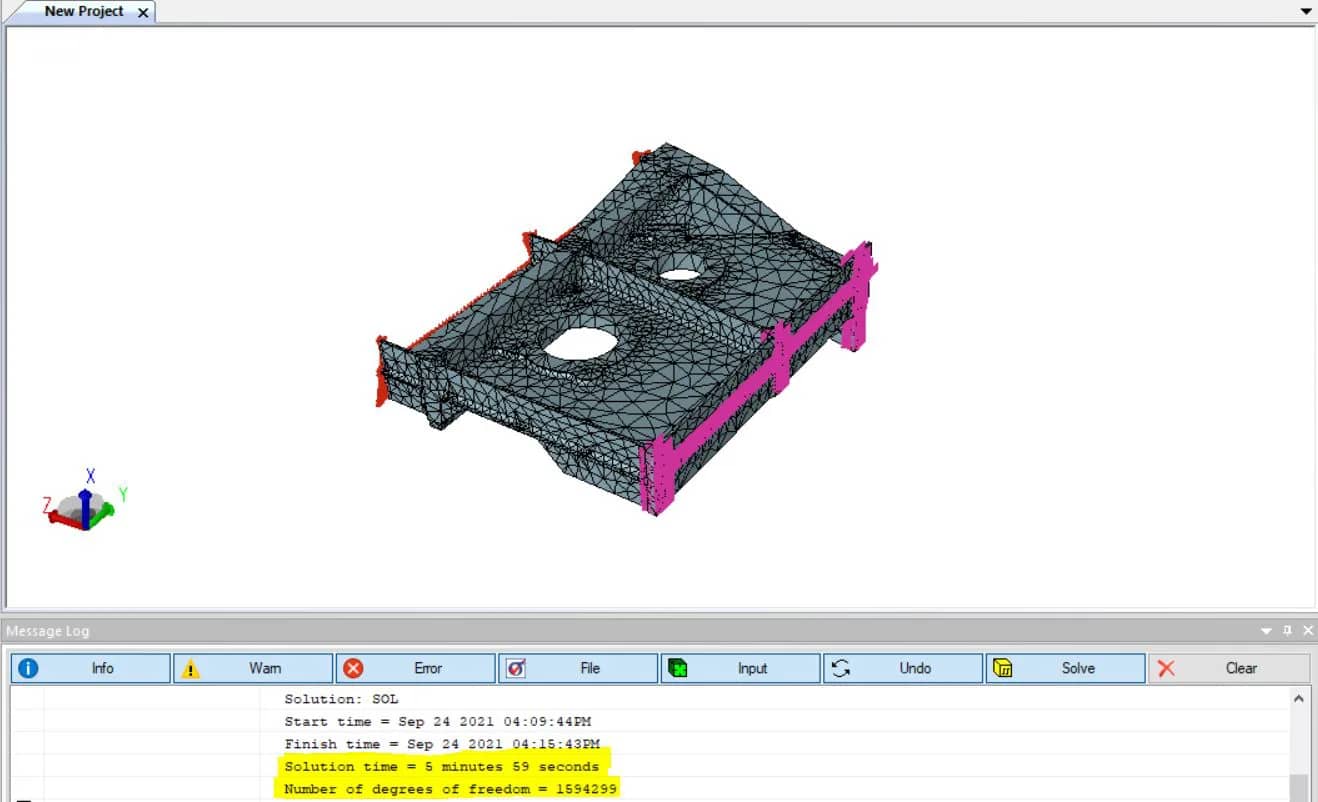System Requirements
Recommended System Configuration
The following system configuration is recommended for running StressCheck Professional on Windows 10 OS:
- Intel Xeon CPU @ 2.5 GHz or greater
- 32 GB Random Access Memory (RAM)
- 1 TB SSD scratch disk with SAS disk controller
- NVIDIA/AMD graphics card with 4 GB RAM or greater
- Windows 10 Professional
- Microsoft .NET 4.5 Framework
- Adobe Reader (for offline documentation)
Minimum System Configuration
The following minimum system configuration is required to run StressCheck Professional on Windows 10 OS:
- 8 GB Random Access Memory (RAM)
- 20 GB free disk storage
- OpenGL-compliant video card
Note: Operational efficiency of StressCheck is dependent upon the amount of RAM, the number of processor cores, disk speed and available scratch disk space. The more memory and disk space that you provide, the better StressCheck will perform.
Benchmark Examples
For example, the below benchmark of 22770 3D tetrahedra representing a rib section under torsion was solved at p=5 (~1.6M DOF, 6 minutes) in StressCheck v11 Update 1 and required 13.2 GB of disk space and approximately 2 GB of RAM during solution processing:

And this benchmark of 9532 3D elements (9160 tetrahedra, 212 pentahedra and 160 hexahedra) of a longeron section under bearing/bypass loading was solved at p=6 (~1.1M DOF, 7 minutes) in StressCheck v11 Update 1 and required 17 GB of disk space and approximately 3.3 GB of RAM during solution processing:
Looking for Resources?
Recent News & Events
Quick Links
Testimonials
-
“StressCheck is the work horse for NAVAIR Structures’ detailed stress and stress concentration calculations. This software also is the basis for our development of a Structural Analysis Management System.”
Dr. David John Barrett, Head
Airframe Technology Branch, NAVAIR
 Serving the Numerical Simulation community since 1989
Serving the Numerical Simulation community since 1989 






